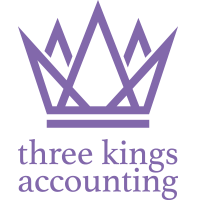In December 2015, the government revealed a plan for new legislation that would abolish the Class 2 national insurance contributions. They also announced that further NIC changes would be proposed in 2018.
Originally, the change was expected to be implemented in 2018. However it has been announced that it will now come into effect one year later, in 2019.
Here’s what you need to know about why the change has been delayed, what it will mean and who it will impact.
Who Will Be Impacted By The Change?
Self-employed people will be impacted by this change. Indeed, the proposal was made due to the fact that currently the self-employed have to pay two National insurance contributions – Class 2 and Class 4. By abolishing Class 2, the self-employed will only need to contribute one in the future.
How Will This Impact The Self-Employed?
The Class 2 NICs provides the self-employed with a wide variety of benefits from the state. This includes, but is not limited to, the Basic State Pension, Maternity Allowance, Bereavement Benefits and contributory Employment and Support Allowance. Some people are worried that once the Class 2 NICs are abolished the self-employed will struggle to gain these types of benefits.
This is one of the reasons why on 2nd November 2017, the government revealed that the abolition would be delayed by one year. Specifically, it will now take place on the 6th April 2019 for that tax year.
Why Has It Been Delayed?
In the official proposal, the government stated clearly that it is a complex issue and at the first time announcing the abolishment no timetable had been put in place. It was only later that a 2018 date was announced. In the initial report, the government welcomed views and ideas on different approaches and even alternative options.
The government has announced that the delay is so that parliamentarians and interested parties can engage with them. In doing so, they will be able to discuss issues and concerns that they have about the Class 2 NICs abolishment and the impact it will have on the self-employed.
In particular, many parties seem to be worried about the impact that it will have on self-employed individuals who make low profits. These are the people who will be most in need of the benefits that the Class 2 NICs provide that they will now struggle to access.
Currently, the plan to deal with this issue is to adjust the Small Profits Threshold (SPT) as part of a larger restructuring of the Class 4 NICs. The proposal includes creating a new zero-rate band of Class 4 NICs for profits annually between the current pay level of Class 2 and the SPT.
As well as this, contributions that are attached to the State Pension and other contributory benefits would be changed to count towards benefit entitlement so that individuals at or over the SPT can still get the benefits they are entitled to.
Due to the delay, it is possible that the plans will be changed further before the abolition is implemented in 2019. So keep an eye out!


